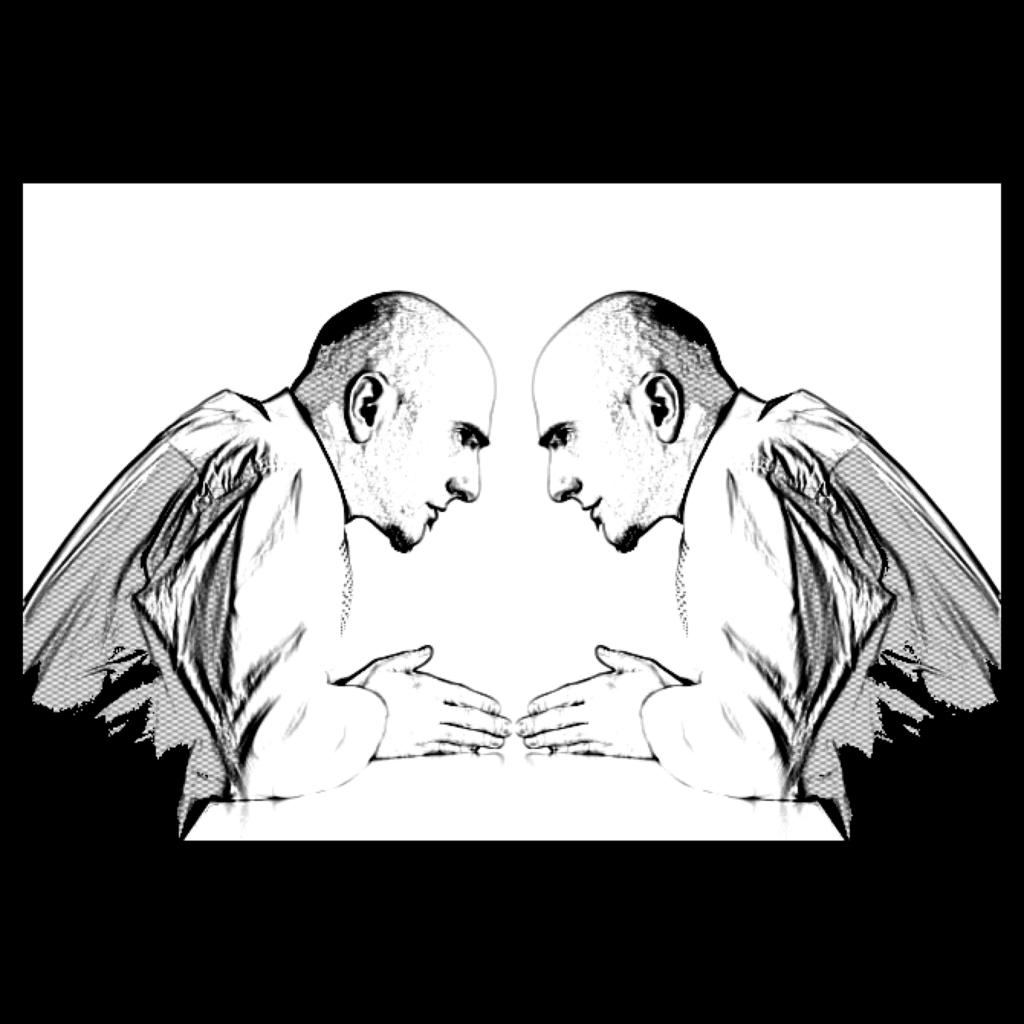
TWO BRAINS
I’ve had this two brain idea since my frat days at Knox College (1977-1981). I didn’t move into the Beta House until September of 1978, two months after the movie “Animal House” was released. Bad timing.
My two brain idea originated from an Animal House scene with Pinto (below), the devil, an angel, and his passed out date at the infamous toga party. Pinto rejected the devil and took his unconscious date home in a shopping cart. Judged by today’s #MeToo world, the angel-devil scene is pretty controversial. Albeit inappropriate, the scene has always been and will forever be relevant. It points to a battle that has raged since the dawn of man. The thinking brain vs the feeling brain.
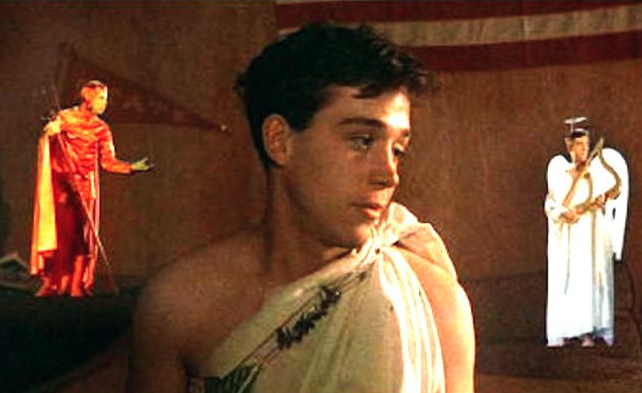
(As an aside, I don’t believe people live in a constant battle of good vs evil. No part of me believes in Satan. Matthew McConnaughey says we have two wolves inside of us, a good wolf and a bad wolf. He encourages us to “feed the good one”. People eat it up. I don’t. I see a binary conflict, but it’s not good wolf vs bad wolf.)
In the late 90’s, before Feed the Cats, I would often walk with my guys as they recovered between intervals. I’m embarrassed to say we sometimes did interval workouts of 24 x 200, 16 x 300, or 12 x 400. I would share dime-store psychology, profiles of courage, and anything else I could dream up to motivate the next rep. Imagine coming up with 24 three-minute motivational speeches! If you want to hear more about my pre-FTC craziness, read Eight Workouts from the Vault.
One of my motivational stories I often told was an adaption of Pinto with the devil on his right shoulder and angel on his left. I told my guys that we all have a courageous voice and a voice of surrender. Strong vs weak. I encouraged my guys to smash the voice telling them to surrender. Man up.
By the way, encourage is my favorite word in coaching. Encourage = to give courage.
Like my training methods, my two brain theory has evolved. It’s gone from the “good vs evil” of Animal House, to the “strong vs weak” of excessive training, to the “thinking brain vs feeling brain” of Feed the Cats.
Even though my theory can be applied to morality, relationships, and life in general, my focus is on high performance.
THINKING BRAIN VS FEELING BRAIN
The feeling brain is impatient. The feeling brain is selfish. The feeling brain often changes its mind. The feeling brain knows what we want. What we want today might be different than what we want tomorrow. Due to the capricious nature of the feeling brain, it can’t be trusted.
The feeling brain wants all the best things. Want could be considered a precursor to many of the “Seven Deadly Sins” (lust, gluttony, greed, sloth, wrath, envy, and pride). It sounds ironic, but wanting good things can cause boatloads of pain and suffering. The feeling brain makes us human. Without a feeling brain, we would be like Spock from the planet Vulcan (reference to Star Trek). Devoid of emotions, we would all behave in logical and calculated ways (the thinking brain). Our life would be good, but maybe not as interesting. If people always acted in thoughtful ways, we would lose the drama of the human experience. Shakespeare would have been out of a job.
The thinking brain determines what we need. The thinking brain knows where we want to be next month, next year, and even several years in the future. The thinking brain is aware of our accomplishments, our reputation, and our legacy. The thinking brain also learns from the mistakes of our past.
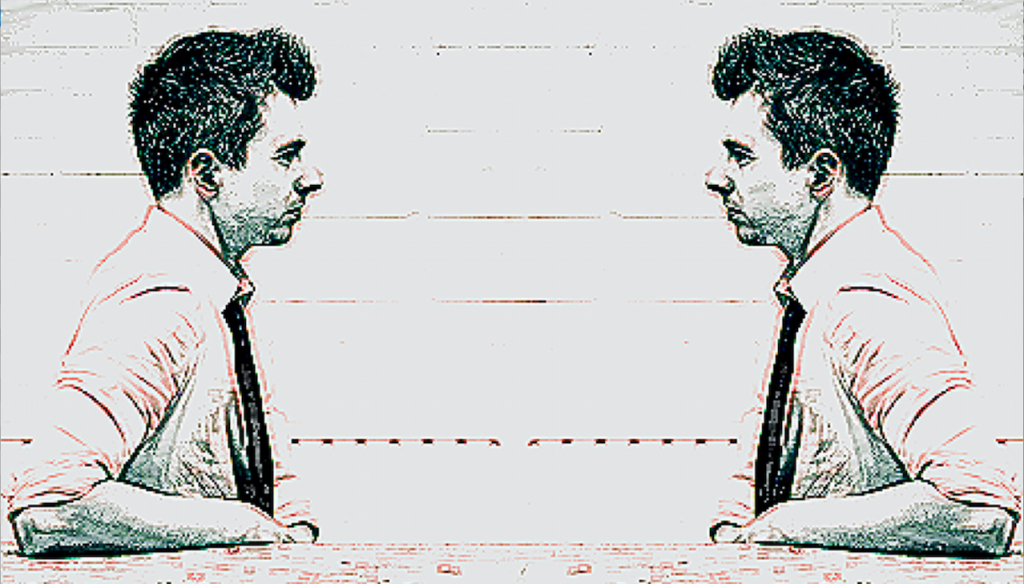
The thinking brain determines what’s truly best for us, but can only make that decision based on the information at hand. People who shun reading, lack good role models, and fail to ask questions, will make poor decisions. The thinking brain is not always smart.
Here’s the conflict. What we want and what we need is seldom, if ever, the same.
Just because the feeling brain frequently changes its mind, don’t underestimate it. It’s clever as hell. The feeling brain can persuade the thinking brain to justify and defend its craziness. Some people live by acting out their feelings and defending their crazy behavior with thoughtful explanations. When the thinking brain is owned by the feeling brain, people become drama queens. Their lives move from one disaster to the next.
Case in point… how many times have you done something stupid and asked yourself, “What was I thinking?” Well, the feeling brain was running the show. The thinking brain went along for the ride and must deal with the aftermath.
TWO BRAINS AND ATHLETIC PERFORMANCE
STEP ONE… Understand you have two brains. Understand the conflict.
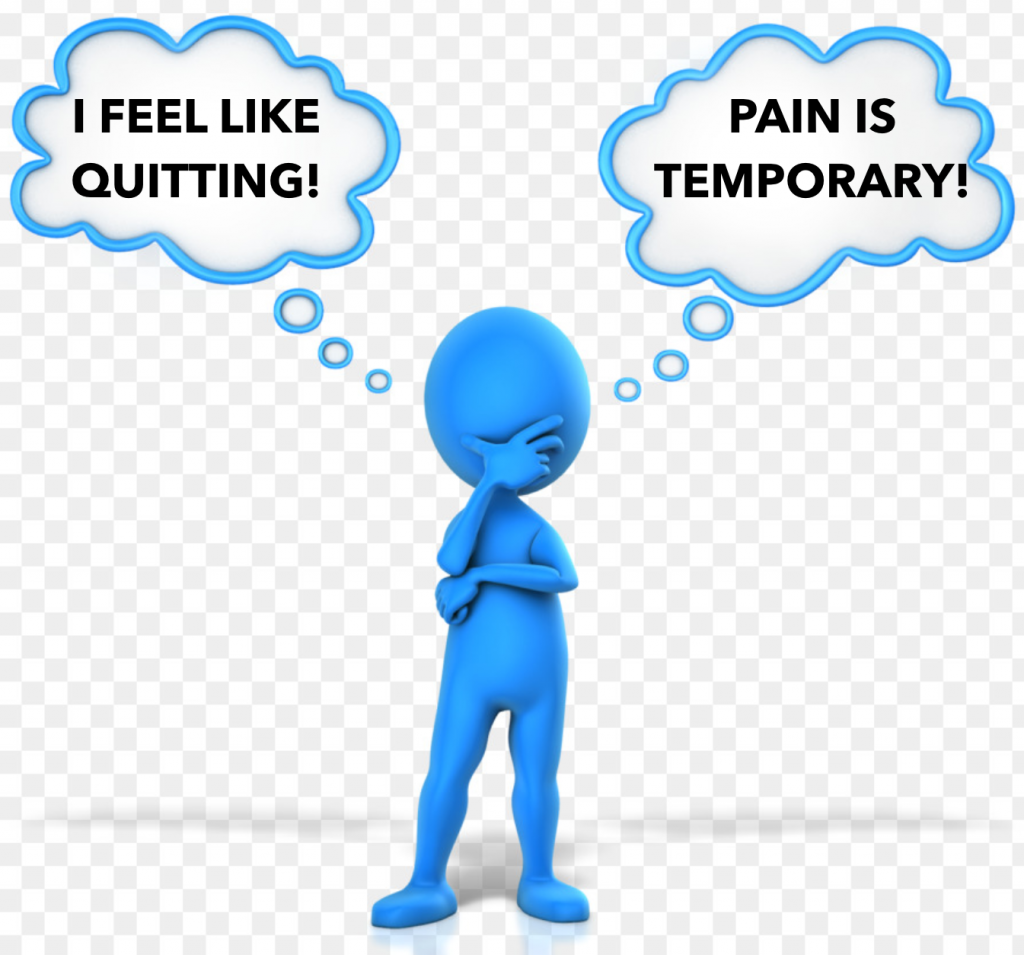
STEP TWO… Talk to yourself. I first heard this a couple years ago from Steve Jones, Kimberly HS football coach, 112-7 in his career. When you talk to yourself, the thinking brain is doing the talking. When you talk to yourself, you perform with mental toughness and discipline.
A basketball player on the foul line might hear an inner voice (the feeling brain) say, “I hope I don’t miss. I missed the last two free throws. Coach will probably take me out is I miss another.” The feeling brain is insecure. It wants to be liked. It’s afraid of failing.
The thinking brain must do the talking. “Back spin, follow through, over the front of the rim.” Adrian Dantley used to say this to himself before every free throw. You could see his lips move. Dantley ranks 10th all time in NBA free throws made, 6832. As a basketball player 40-plus years ago, I copied Adrian Dantley and said the exact same three things to myself. I talked to myself at the foul line. I shot 80%.
STEP THREE… Write it down. Journals have been used throughout human history to separate needs from wants. If talking to yourself is a strategy, so is writing to yourself. For many years now, I’ve kept a spiral notebook. It’s my calendar and my to-do list. I write down how far I run and how fast I run. I write down my weight. My notebook is a written record of my daily mission and what I hope to accomplish as a person and a coach. Cross country coaches understand the value of their athletes keeping a “running log”. Running logs are journals.
STEP FOUR… Learn to keep your feelings on a short leash. “If you don’t train your dog, he will train you.” I use this all the time. Teachers must train their students or their students will train them. Parents must train their kids or their kids will train them.
Your feelings are selfish and fickle. They must be trained.
I know what you are thinking. “But I like my feelings!”
People also like their dogs.
You probably LOVE your dog, but you don’t want him to eat your shoes and shit on your floor. You love a trained dog, not a wild animal. You want your dog to walk with you, not dislocate your shoulder.
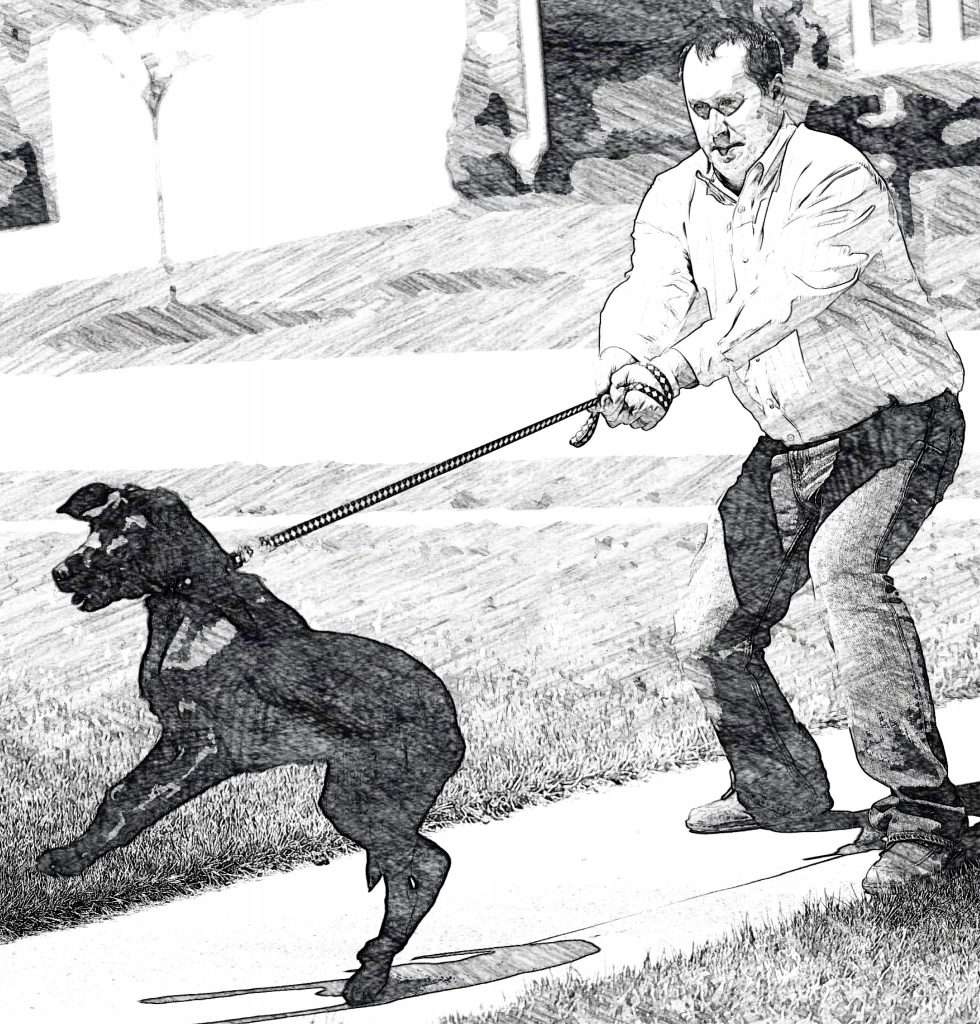
Do well-trained dogs lead miserable lives? NO. The well-trained dog leads a BETTER LIFE. The well-trained dog doesn’t have to be kept in a cage. The well-trained dog may not require a leash. The well-trained dog gets to go to the park because the dog has earned his owner’s trust. At the park, the well-trained dog can have a blast.
This is the life of an athlete. Discipline and delayed gratification. Eventually, you will have a blast.
Athletes must keep their feelings on a short leash. They must minimize the urge to be lazy, eat for fun, stay up all night, and generally lead undisciplined lives. The feeling brain can’t do the talking. The feeling brain can’t run the show.
Athletes must read and find good role models. They must ask questions and seek the best training ideas. Grace Slick of Jefferson Airplane delivered the iconic line from 1967, “FEED YOUR HEAD”, a call to arms of sorts about the importance of education and the idea of enlightening your mind. Remember, the thinking brain is not instinctively intelligent. Feed your head.
The thinking brains of athletes must dominate their feeling brains. The thinking brain allows you to survive training. The thinking brain is tough, because it knows what’s best for you. The thinking brain stays focused on the mission. The thinking brain will prioritize rest. The thinking brain will encourage you to eat your vegetables.
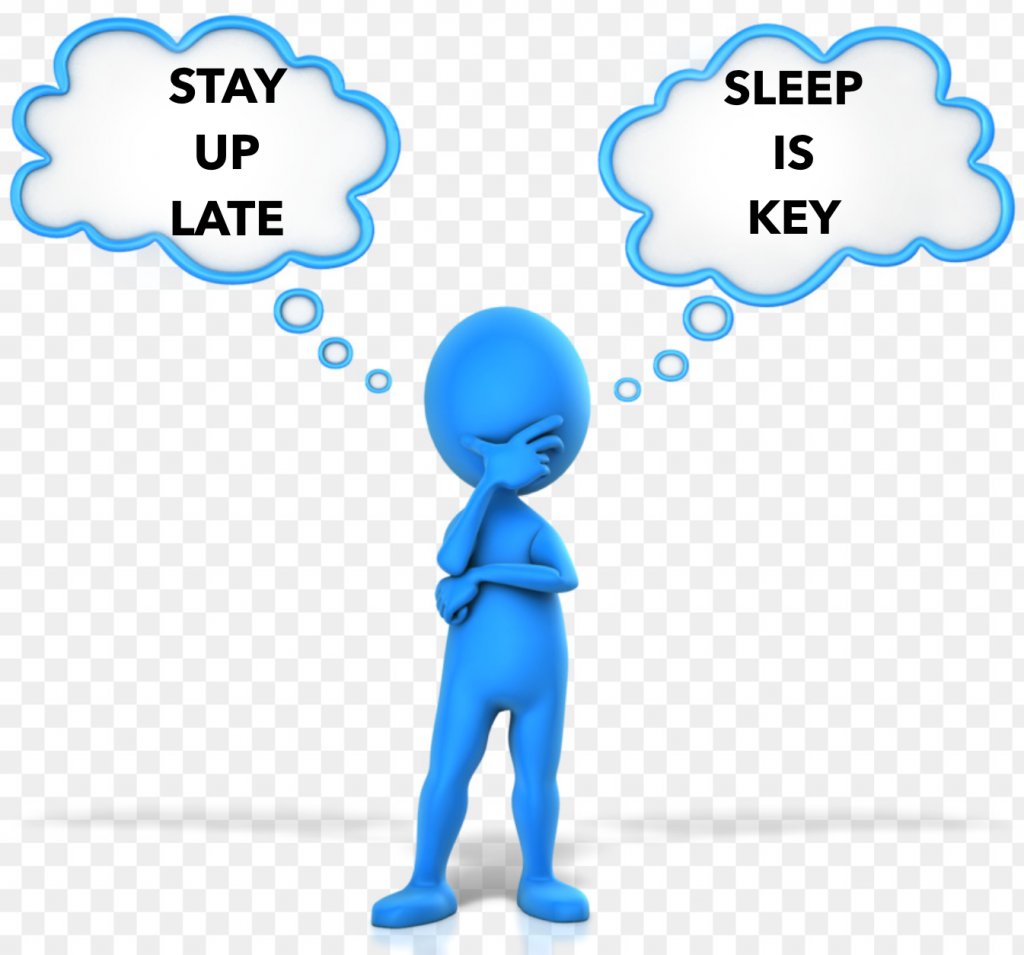
When setbacks occur, and they will, the feeling brain will react with sadness and you will feel like quitting. The thinking brain knows better.
ARCHITECT, MASTER, CAPTAIN
A couple days ago, my son Alec sent me a link to a motivational speech by Matthew McConaughey, thinking it fit in well with my belief that we should go on a mission and surrender to the results. It’s very good. I’ve listened to it three times and taken notes.
“Since we are the architect of our own life, let’s study habits, practices, and routines that lead to, and feed our success.” -Matthew McConnaughey
The architect. I like that. I wonder which brain has the expertise to be the architect?
William Ernest Henley ended his poem, “Invictus”, with this line:
“I am the master of my fate, I am the captain of my soul.”
The master. The captain. I wonder what brain has the brilliance to serve as the master? What brain deserves to be the captain?
Athletes must become the architect, master, and captain of their own lives.
Acknowledge the conflict.
Keep your feelings on a short leash.
Talk to yourself.
Write it down.
Feed your head.
+++
By Tony Holler
@pntrack
tony.holler@yahoo.com
630-849-8294
UPCOMING EVENTS
Coach Holler will be speaking at all of the following.
TFC-Chicago, Dec 6-7, Elmhurst College… featured speakers: Vince Anderson (sprint guru) and Brian Kula (track coach and trainer of Christian McCaffrey)
Feed The Cats Seminar (first of its kind!), Wichita, KS Dec 13-14 (11 presentations, early bird only $100, staff rates available). Seven sessions will appeal to football coaches. Presenters: Tony Holler, Alec Holler, and Quinn Holler
Georgia GATFXCCA Coaches Clinic Jan 10-11, Atlanta, GA
Central Illinois Track Clinic Jan 17-18, Unity High School, Tolono, IL (only $50 pre-registered!) Special event… Coach Holler and distance coach, Andy Derks will co-present, “Cats vs Dogs”.
Minnesota Track Clinic January 24, Minneapolis, MN
TFC-Dallas January 25-26 (Amazing Line-Up!), Jesuit Prep, Dallas, TX… featured speakers: Vince Anderson (sprint guru) and Brian Kula (track coach and trainer of Christian McCaffrey), Steve Jones (112-7 at Kimberly HS, WI)
TFC-St. Louis February 7-8 (Maybe best-ever TFC lineup!) Festus H.S., Festus, MO… featured speakers: Kevin Kelley (200-29 at Pulaski Academy of Little Rock, team averaging 57.4 ppg, doesn’t punt) and Kurt Hester (author of Rants of a Strength and Conditioning Madman)
TFC-Chicago June 2020 (date TBA)

Amazingly succinct as always Tony! Great self-talk!
Applies to old guys like us, too!
Thanks for sharing Tony. I am coaching 15-16 year old boys and see what i have called an ’emotional’ response in their body language to setbacks (be it as simple as failure to execute a pass accurately). I ask them to stick to the process, to review/reflect and correct…but this article does a great job of explain it…i will be sharing it. Thanks
Looking back at my own playing days, I wish I could have separated my emotional response from my thinking response. Mark Manson (Subtle Art) talks about the difference between “I am tired” and “I feel tired”, or “I am scared” and “I feel scared”. Very different. Once you except that you can’t trust your feelings, you allow the thinking brain to take charge. Thanks for reading!